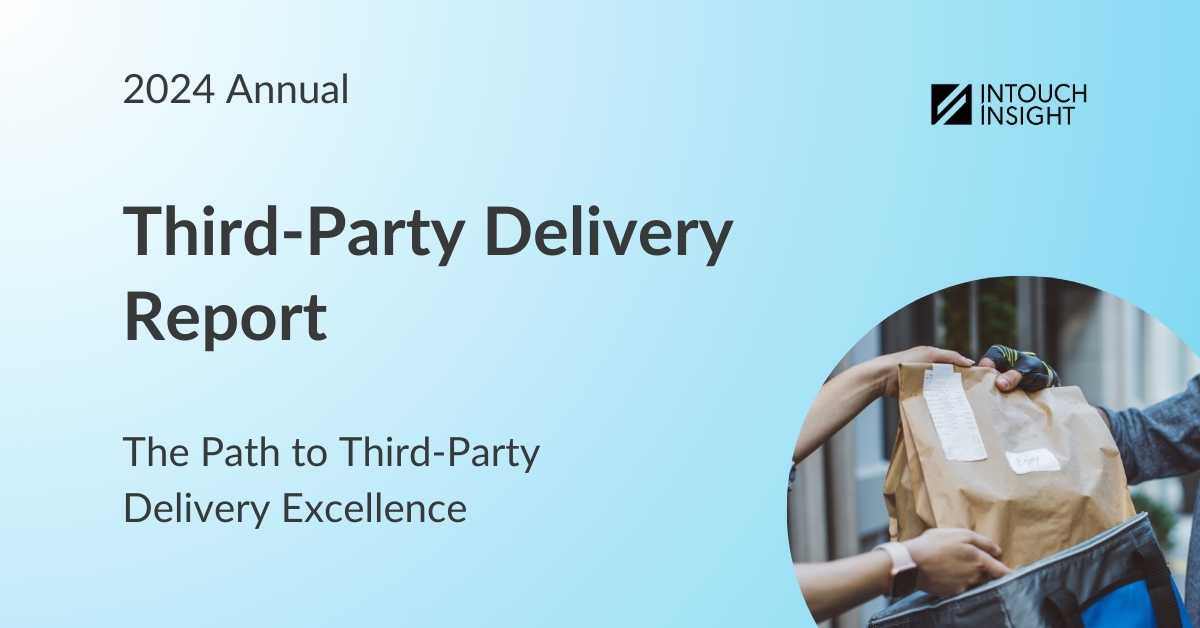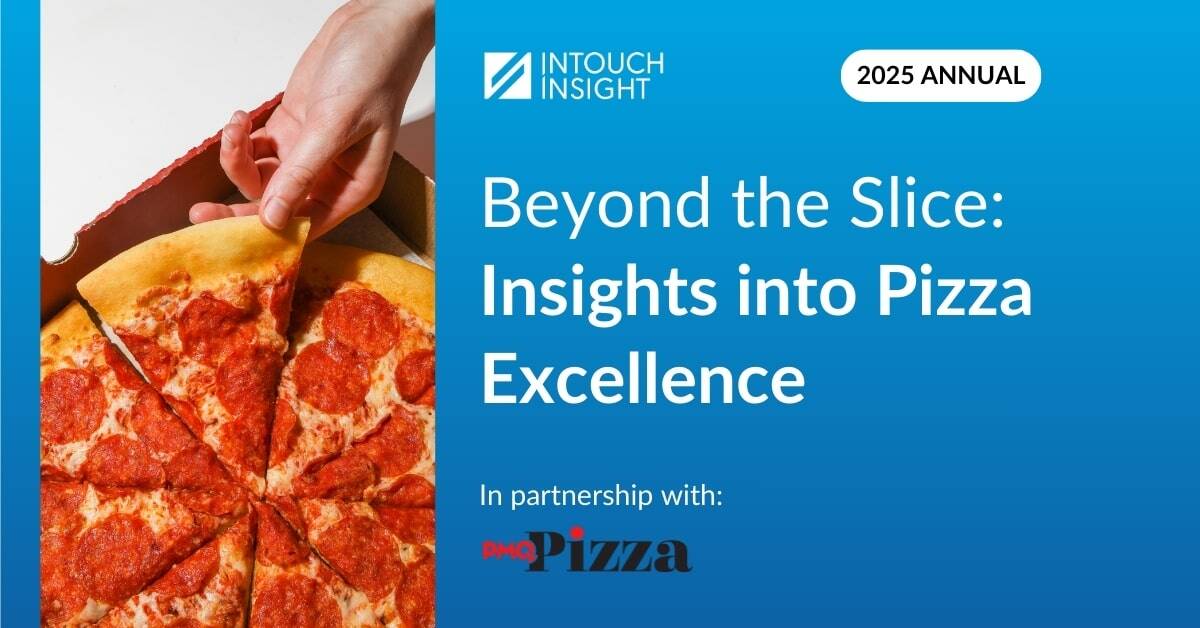KPIs for Online Food Delivery: Evaluating Your Delivery Partner
For brands looking to tap into the booming online food delivery market, the big question is: how do you extend your brand’s promise and deliver a...
3 min read
Sarah Beckett September 18, 2024

We’re thrilled to publish the findings of our first-ever study, 2024 Third-Party Delivery - The Path to Third-Party Delivery Excellence, which uncovers key insights into third-party delivery services in partnership with Informa Connect.
With the U.S. online food delivery industry projected to reach 193 million users by 2029, staying ahead of the trends is more important than ever.
This study is designed to help restaurant and convenience store operators and leaders navigate the shifting third-party delivery landscape.
Comparing performance across both industries highlights where each stands today, what customers expect from third-party delivery platforms, and how you can adjust your approach to meet their needs.
Ready to explore the full insights? Download the report now, or keep reading for the key takeaways!
For this study, we used mystery shoppers to place orders through three major third-party services. To ensure fair comparisons, they were not allowed to use any subscription-based delivery plan or pay for priority delivery.
A total of 600 orders were placed across the United States, with each food delivery service handling 200 orders—100 from convenience stores and 100 from quick-serve or fast-casual restaurants.
Brands evaluated: Uber Eats, DoorDash, and Grubhub.

In this study, we set out to explore a few key areas and uncover trends in food delivery:
In this study, we focused on some important customer experience KPIs to see how well third-party delivery services perform. These include speed of service, accuracy, fees, and customer satisfaction. We'll dive into each one in the following sections.
Ready to dive deeper into each KPI? Download the report now, or keep reading to find out.
Speed and convenience are two of the most important aspects of third-party food delivery.
Our data from previous reports on Quick Serve Restaurants (QSRs) and convenience stores shows that today’s consumers expect fast service that offers good value, and slow service often leads to lower satisfaction.
To evaluate the speed of service, we measured:
The average delivery time across the third-party delivery partners was 33 minutes and 3 seconds.

Order batching—where multiple orders are combined into a single delivery trip—is a common industry practice.
However, our findings show that this can impact customer satisfaction, particularly influencing key metrics like speed of service and food temperature.
Other metrics evaluated: delivery time by third-party delivery partner, delivery time by industry, % orders delivered according to promoted and estimated time, the impact of batching on the speed of service and food temperature, satisfaction with the speed of service, and more!
In a recent survey of 1,483 North American consumers, order accuracy was the top priority when choosing a fast-food restaurant. As a result, we have kept this as a key metric, even though some elements of accuracy are outside the delivery partner's control.
To measure accuracy, we asked shoppers if their orders were correct, including any special requests or customizations. Overall, convenience store orders had lower accuracy than restaurant orders.
Another aspect evaluated was food temperature accuracy. We found that it drops to 77% when drivers handle multiple deliveries, compared to 95% when making a single delivery.
Overall, the accuracy by third-party delivery partners was 84%.
Other metrics evaluated: restaurant and convenience store insights, order accuracy by food category, order accuracy by time of day, food temperature by brand, and comparison between larger restaurant chains and independent restaurants.
Delivery fees on third-party apps are mainly influenced by the distance between the restaurant and the delivery location. They can also vary based on factors like demand during busy times and the size or value of the order.
Our recent survey on consumer perceptions of restaurant technology revealed that "cheaper delivery fees" are the second most important factor for customers when choosing between delivery apps, just behind "restaurant availability."
The average delivery fee across the three apps we evaluated was $5.96. Compared to a similar third-party delivery study we conducted in 2022 focused solely on restaurants, we observed a decrease of approximately 15% in fees since that time.
Other metrics evaluated: average delivery fee and service fee by brand, restaurant and convenience store fees breakdown, price markup and third-party delivery apps, price markup by restaurant segment, and more!
When it comes to satisfaction with the overall experience, 85% of shoppers were satisfied with the experience.
Overall satisfaction:
In a 2022 study on third-party restaurant delivery, overall satisfaction was 87%. This year, we saw a significant improvement, with overall satisfaction for restaurant orders rising to 91%.
The 2024 Third-Party Delivery Study showed that key factors affecting customer satisfaction include food temperature, accuracy, and speed of service. Other important metrics are delivery time, delivery fees, and service fees.
Ability to Customize Order
We also looked at whether shoppers could customize their menu selection through third-party delivery services.
While all three delivery partners offered some customization options, there was a significant difference between industries: 93% of restaurants provided customization options, compared to just 45% for convenience stores.

Other metrics evaluated: satisfaction by brand and industry, satisfaction with delivery time, delivery and service fee, overall satisfaction by time of day, and more!
Ready to uncover all the insights you need to optimize your third-party delivery strategy? Download the 2024 Third-Party Delivery Study now!

For brands looking to tap into the booming online food delivery market, the big question is: how do you extend your brand’s promise and deliver a...

Once upon a time, pizza ruled delivery. Back in the 1950s, a small family shop in Los Angeles started offering free delivery, setting the stage for...

Pizza delivery has come a long way from a simple phone call and a 30-minute wait. Today, customers expect speed, accuracy, and a hot, fresh pizza...